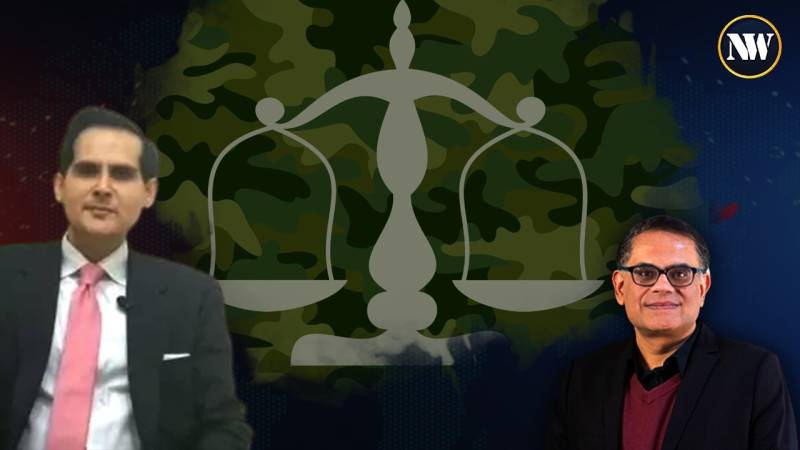Pakistan's political landscape has always been a complex terrain, marked by a delicate balance of power among its key players - the judiciary, the military, and the political leadership. In recent times, this balance has been put to the test, raising important questions about the future direction of the country. In this interview, we explored the challenges and perspectives surrounding Pakistan's evolving political dynamics.
One of the significant aspects of Pakistan's political system is the role of the judiciary. Often tasked with interpreting and upholding the Constitution, the judiciary holds a pivotal position in maintaining the rule of law. However, instances arise where legislators neglect to address ambiguous provisions, leaving room for subjective interpretations. A notable example is Articles 62 and 63, where the 18th Amendment's passing presented an opportune moment for lawmakers to clarify the provisions.
The failure to address such ambiguities can lead to a situation where these provisions are open to personalized opinions, particularly when interpreted by the Chief Justice of the Supreme Court. This paradoxical scenario is heightened by the political elites' tendency to condemn certain actions while in opposition, only to adopt similar strategies when in power. The judiciary's potential vulnerability to political influence highlights the intricacies of balancing power between the three pillars of the state.
Historically, the military has played a significant role in Pakistan's politics, often acting as a power broker. However, the mechanisms for military intervention have evolved over time. The constitutional avenue provided by Article 58 to B, which enabled the military to dissolve governments, has been eliminated. This shift poses challenges to direct military involvement in political affairs.
Recent political climates have witnessed intense rhetoric and public criticism directed at military leadership by politicians. This dynamic has led to a more cautious approach from the military, refraining from overt political interventions. While the military's historical influence cannot be ignored, the changing political dynamics and the potential backlash from the public raise questions about its future role as a power broker.
One of the most pressing challenges Pakistan faces is the potential for a constitutional crisis. Recent instances of governments disregarding court orders or failing to hold timely elections have raised concerns about the country's democratic process. The judiciary's role in upholding the Constitution and ensuring its implementation becomes crucial in these moments.
Failure to hold elections within the designated timeframe could plunge the nation into a constitutional crisis, resulting in political instability and uncertainty. While political parties may engage in tactics to create a deadlock, such actions could undermine the country's progress and stability. The need for adherence to constitutional norms and the rule of law is paramount to prevent a descent into chaos.
Amidst these domestic challenges, Pakistan also faces global threats, with climate change standing at the forefront. Rising temperatures, shifting weather patterns, and environmental degradation pose significant risks to humanity. As a nation vulnerable to the impacts of climate change, Pakistan must prioritize sustainable policies and collaborate on a global scale to address this pressing issue.
Pakistan's political landscape is rife with complexities, where the delicate interplay between the judiciary, the military, and the political leadership shapes the nation's trajectory. The challenges and perspectives discussed in this article highlight the need for a balanced approach that prioritizes constitutional norms, the rule of law, and the welfare of the nation's citizens.
As Pakistan navigates its way forward, it must find a way to address ambiguities within the legislation, foster a constructive relationship between the military and political leadership, and ensure the implementation of court orders to maintain its democratic integrity. Moreover, in an era of global challenges, Pakistan's role in addressing issues like climate change becomes paramount, emphasizing the interconnectedness of local and global dynamics.

